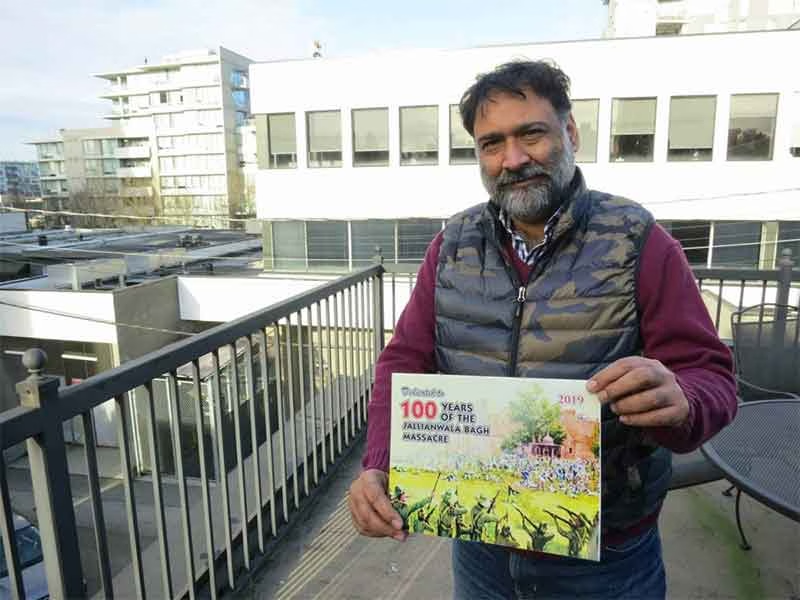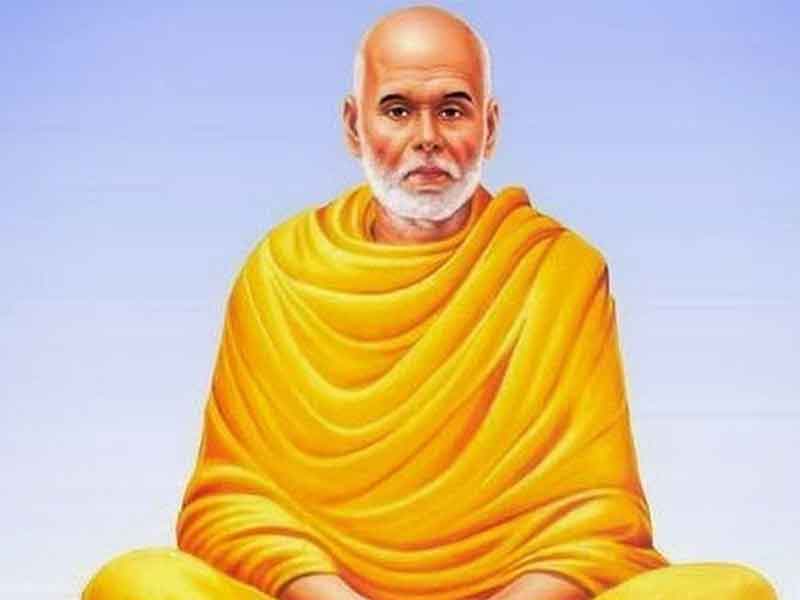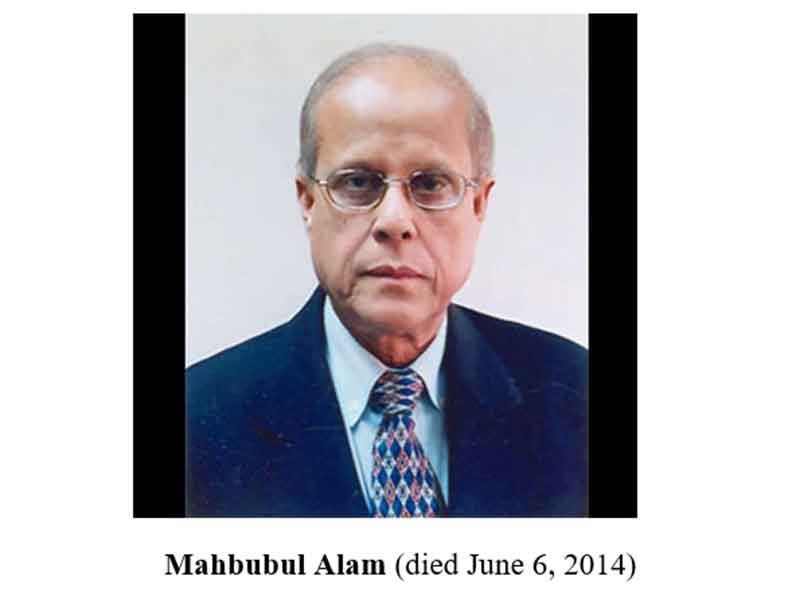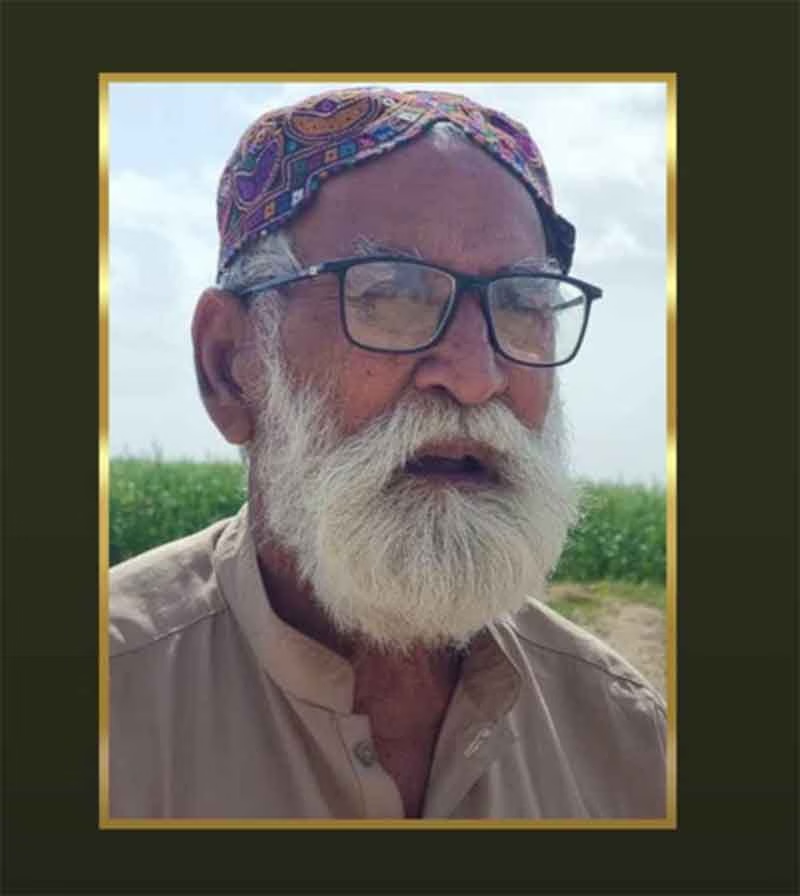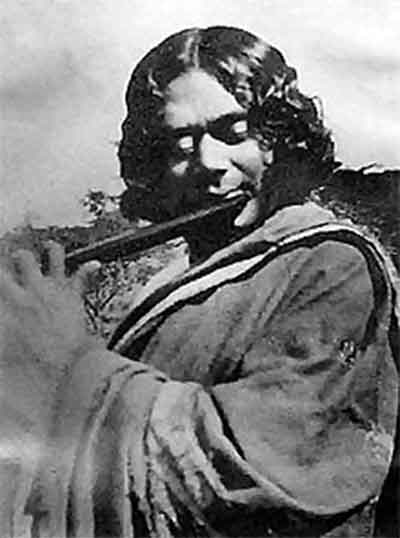Vishwas Patil, prolific, talented Marathi novelist, was a member of a delegation of writes to China in 2013 led by Sunil Gangopadhyaya. At a conference in a big library in Beijing Patil read out a short story by veteran dalit, Communist writer Annabhau Sathe. The audience was stunned into silence, such was the power of the story “Gold in the cremation ground”.
It is about a dalit man who in his desperation for survival looks for gold in a cremation ground and as a result loses his fingers.The story is included in an anthology of dalit literature published by Macmilan and edited by Arjun Dangle.
Patil has mentioned this in the introduction to his remarkable biography of Sathe now translated into English by Vikrant Pande and published by Sahitya Akademi.
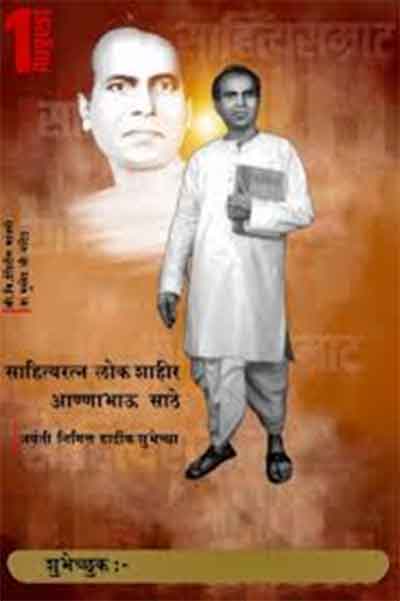
This book is a labour of love for Vishwas Patil. It is rare for a prominent writer, a former district collector of Mumbai, to take such a loving cognisance of another writer.
Close to 50 years after his death, poet, activist and writer Annabhau Sathe (1920-1969) continues to have a looming presence in Maharashtra’s socio-cultural life. Innumerable roads, neighbourhoods, street corners, gardens, community spaces, and libraries across the state’s villages, towns, and cities are named after him, as Aritra Bhattacharya points out.
Sathe was born on August 1, 1920, in Wategaon village, part of present-day Maharashtra’s Satara district. He was one of the founding members of the Lal Bawta Kalapathak, the cultural wing of the undivided Communist Party of India, and played a key role in helping Maharashtra’s statehood movement attain critical mass, eventually leading to the formation of the state on May 1, 1960.
Patil compares Sathe with Jayakanthan, a Tamil writer who was also a communist, like Sathe almost illiterate and yet made a big name in literature. Both were encouraged by the Communist party leadership. .
In the portrayal of women, Patil thinks Sathe comes close to Premchand, the major Hindi writer.
Sathe was exceptional in many ways. He was a dark skinned dalit belonging to the Maang community doing work like basket weaving, very different from the dominant Mahar community the main base of Dr Ambedkar’s movement originally, that is the community he came from that that is from where all major dalit writers came including the pioneer Baburao Bagul, Namdeo Dhasal, Daya Pawar and Arjun Dangle.
Sathe preceded them all, he was also a hard core communist unlike other dalit writers who were sympathetic but their affiliation was more with caste while for Sathe class was the main factor.
All major dalit writers were mainly Mumbai based, Sathe grew in the wild, free spirit adventurous rural area where youngsters were not afraid of wildlife.
He was a changed man once he came to Mumbai, a Muslim woman Chand bibi, owner of chawls gave him space, he began working in a mill in Dadar, saw a lot of films, learnt to read and write.
Patil’s book also helps to understand Mumbai’s history of working class suffering which has been forgotten, not recorded.
In later life Sathe had moved to a poor locality Chiragnagar in Ghatkopar. In the neighbourhood a hill was being pulled down with blasts as it was thought to be a hindrance to the landing of aeroplanes at the Santa Cruz airport. On the evening of November 9, 1958 a huge mass of the hill collapsed burying several workers, the bodies of nearly 50 remained buried, unaccounted for, never taken out. Sathe wrote on this in the communist Marathi mouthpiece Yugantar. A brave woman facing the ordeal became the subject of one of his most prominent woman characters in a novel.
Famous Hindi writer Kamleshwar was a fan of Sathe, used to sit outside his hut, Bimal Roy , film director, too paid a visit once.
In 1955 Sathe worked closely with K.A. Abbas and Nargis in the making of the film Pardesi based on the life of Russian traveller to India in the 15th century, Afanasy Nikitin, some of the shooting was done on the bank of the Mithi river in Mumbai which was clean then and is now notoriously dirty .
Sathe’s major contribution was also his rousing singing of ballads that galvanised thousands of workers, demonstrators along with Amar Shaikh and Gavankar.
Born in 1920, he passed away in 1969, much before the rise of the dalit sahitya movement came into being. An enormously talented man, he did not get the recognition from the literary establishment but his place in history will remain high.
Patil also compares Sathe’s writing with that of the revolutionary writer Mahashweta Devi. But she came from a privileged family, on the mother’s side she belonged to the family of Ritwik Ghatak, the eminent film maker and Sachin Chaudhari, founder of Economic and Political Weekly.
Sathe was also very close to Shailendra who wrote so many popular lyrics for numerous hit films of Raj Kapoor, he was also a dalit and a staunch Communist, very close to IPTA, Indian People’s Theatre Association. Sathe was for some time president of IPTA.
Both Sathe and Shailendra suffered a heavy loss in film production, the former about the film Fakira based on his very popular novel Fakira on an anti British rural dacoit rebel. Shailendra suffered a loss in his film Teesri Kasam featuring Raj Kapoor, it won recognition but was not a financial success.
Subscribe to Our Newsletter
Get the latest CounterCurrents updates delivered straight to your inbox.
Hindi writer Phanindranath Renu, a contemporary, could be compared with Sathe but Renu though he also came from a backward community, had a father who had a good understanding of issues.
Sathe came from a life of utter poverty, he walked over 200 km from his village to Mumbai in search of livelihood, had no money for rail travel.
Vidyadhar Date is a senior journalist, culture critic and author of the book Traffic in the era of climate change

